Fish Names & Pictures | Fish Vocabulary | Necessary Vocabulary
Fish
Fish / fɪʃ / (ফিশ) n [a creature which lives in water, is covered with scales, and which breathes through gills, and uses fins and tail for swimming or the flesh of these animals eaten as food, they can be found in nearly all aquatic environments, from high mountain streams to the abyssal and even depths of the deepest oceans, there are about 30,000 species of fish in the world, fish are an important resource for humans worldwide, especially as food, commercial and subsistence fishers hunt fish in wild fisheries or farm them in ponds or in cages in the ocean] (মাছ; মৎস্য; মীন): In the pool he could see little silvery fish darting around. I cleaned and filleted the fish. Remove the skin and flake the cooked fish.
Fish Related Necessary Vocabulary Note
Ø <VERB> Fish (v) [to catch fish from a river, lake, pond, etc. with a hook, nets, etc.] (মাছ ধরা; মৎস্য শিকার করা): You can fish with a hook in this pond.
 |
| 1. Scale |
Ø Scale / skeɪl / (স্কেইল) n 1. [One of the many very small flat pieces which cover the skin of fish, snakes, and many reptiles] (<মাছ; সাপ ইত্যাদির> আঁশ; আঁইশ): The beast was a python, with great purple and green scales.
 |
| 2. Scale |
2. Scale / skeɪl / (স্কেইল) n [A device for weighing things or people] (দাঁড়িপাল্লা; মাপনী; মাপদণ্ড): bathroom/ weighing scales
Ø Breathe / briːð / (ব্রীদ্) v [to take air into your lungs and send it out again through your nose or mouth] (শ্বাস নেওয়া বা ফেলা): She breathed deeply before speaking again.
<NOUN> Breath / breθ / (ব্রেথ) n [the air that you take into your lungs and send out again] (দম; শ্বাসপ্রশ্বাস): His breath smelt of garlic.
 |
| Gill |
Ø Gill / gɪl / (গিল) n [the organ through that fish and other water creatures breathe] (<মাছের> শ্বাসযন্ত্র/ ফুলকা; কানকুয়া):
 |
| Fin |
Ø Fin / fɪn / (ফিন) n [a thin, flat vertical part that sticks out from the body of especially a fish or an aircraft that helps balance and movement] (<মাছ, বিমান বা জলচর প্রাণীর> পাখনা বা ডানা): The aircraft has a long tail and fin.
 |
| Flesh |
Ø Flesh / fleʃ / (ফ্লেশ) n [the soft substance between the skin and bones of animals or human bodies] (<প্রাণীদেহের> কাঁচা মাংস/ গোস্ত): Tigers are flesh-eating animals. The smell of rotting flesh(কাঁচা মাংসের পচা গন্ধ).
Ø Aquatic / əˈkwætɪk / (এˈকোঅ্যাটিক্) adj [living or growing in, happening in or connected with water] (জলজ উদ্ভিদ, প্রাণী ইত্যাদি বিষয়ক): aquatic plants/fishes/sports/life/ecosystems.
Ø Abyss / əˈbɪs / (এˈবিছ) n [a very deep, wide space or hole that seems to have no bottom] (অতল গহবর; পাতাল): Ahead of them was a gaping abyss.
<ADJ> Abyssal / əˈbɪsl / (এˈবিছল) adj [found in the deepest parts of the ocean or on the bottom of deep oceans] ( অতল; গহন): abyssal marine life
<ADJ> Abyssal / əˈbɪsl / (এˈবিছল) adj [found in the deepest parts of the ocean or on the bottom of deep oceans] ( অতল; গহন): abyssal marine life
Ø Subsistence / səbˈsɪstəns / (ছএবˈছিছটএনছ্) n [the state of having just enough money or food to stay alive, but no more] (উপজীবিকা; কোনোরকম প্রাণনির্বাহ করার উপযোগী ): Many families are living below the level of subsistence.
Ø Wild / waɪld / (ওআইল্ড্) adj [describes plants or animals that live or grow independently, in natural conditions and with natural characteristics] (বন্য পরিবেশে): wild moorland
Ø Cage / keɪdʒ / (কেইজ) n [a structure made of metal bars or wire in which animals or birds are kept] (খাঁচা; পিঞ্জর): I do not like seeing animals in cages.
Ø Dart / dɑːrt / (ডাঃর্ট) v [to move suddenly and quickly in a particular direction] (তীর বেগে ছোটা বা ছোটানো): A dog darted across the road in front of me
 |
| Gut |
Ø Gut / gʌt / (গাট্) n [the organs in and around the stomach, especially in an animal](<মাছ বা প্রাণীর নাড়িভুঁড়ি>): I will only cook the fishes if the guts have been removed.
<VERB> Gut [to remove the organs from inside a fish or an animal to prepare it for cooking](<মাছ বা অন্যপ্রাণীর পেট থেকে> নাড়ভুঁড়ি বের করে নেওয়া): Lyzoo gutted the fishes and cut off their heads.
 |
| Roe |
Ø Roe / roʊ / (রৌ) n [the mass of eggs inside a female fish<hard roe> or the sperm of a male fish<soft roe>, eaten as a curry of female roe] (মাছের ডিমের দলা):
 |
| Fillet |
Ø Fillet / fɪˈlɪt / (ফিˈলিট) n [a piece of meat or fish that has no bones in it] (মাছের কাঁটাহীন টুকরা বা মাংসের হাড়বিহীন টুকরা):
Ø Flake / fleɪk / (ফ্লেইক) v [to come off a surface in small, thin pieces] (পরতে পরতে খসে পড়া বা উঠে আসা): Flake the tuna and add to the sauce.
<NOUN> Flake [a small, very thin layer or piece of Sth] (ছোট ছোট হালকা পাতলা টুকরা; পরত): This room needs decorating, flakes of paint keep coming off the walls.
<NOUN> Flake [a small, very thin layer or piece of Sth] (ছোট ছোট হালকা পাতলা টুকরা; পরত): This room needs decorating, flakes of paint keep coming off the walls.
Ø Fishbone / fɪʃboʊn / (ফিশবৌন্) n [any of the bones forming the skeleton of a fish, especially one of the sharp slender bones attached to the backbone](মাছের কাঁটা):
Hilsa
Hilsa / hɪlsə / (হিলছএ) n [hilsa is a species of fish in the herring family and a popular food fish in South Asia. It is found in rivers. The fish schools in coastal waters and ascends up the rivers to spawn during the South West monsoons and also from January to March. The young fish returning to the sea are known as Jatka] (ইলিশ<মাছ>): Hilsa is considered one of the tastiest fish due to its distinctly soft oily texture, mouthwatering flavor, and superb feel.
Ø Herring / ˈherɪŋ / (ˈহেরিঙ্) n [a North Atlantic long silvery colored fish that swims in large groups in the ocean and are eaten its flesh as a curry] (সামুদ্রিক মৎস্য বিশেষ, এরা বিশাল ঝাঁক বেঁধে বিচরণ করে): shoals of herring
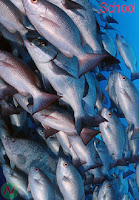 |
| School |
Ø School / skuːl / (স্কূল) n [a large number of fishes or other marine animals, swimming in a group] (<মাছের> ঝাঁক): a school of tuna/ shark
<SYN> Shoal
Ø Coast / koʊst / (কৌছ্ট্) n [the land beside or close to the sea] (সমুদ্রতীর/ উপকুল): I walked along the coast for five miles.
Ø Ascent / əˈsend / (এˈছেন্ড্) v [to rise; to go up; to climb up] (আরোহণ করা; উপরে ওঠা; চড়া): His heart was thumping as he ascended the stairs.
Ø Spawn / spɔːn / (স্পোন) v [to lay eggs] (ডিম দেওয়া বা ছাড়া): The tuna has not spawned yet.
Ø Distinct / dɪˈstɪŋkt / (ডিˈছ্টিঙক্ট্) adj [easily or clearly heard, seen, felt, etc.] (সহজে পৃথক করা যায় এমন): There is a distinct smell of Hilsa fish.
<ADJ> Distinctly / dɪˈstɪŋktli / (ডিˈছটিঙকট্লি) adj [] (স্পষ্টভাবে): We distinctly heard someone calling us.
Ø Texture / ˈtekstʃər / (ˈটেকছ্চএর) n [the way food or drink tastes or feels in your mouth, for example, whether it is rough, smooth, light, heavy, etc.] (স্বাদ ও গঠন): The two butter are very different in both taste and texture.
Ø Mouth-Watering / ˈmaʊθ-wɔːtərɪŋ / (ˈমাউথ-ওয়োটএরিং) adj [describes food looks or smells, so good that you want to eat immediately] (অত্যন্ত ক্ষুধাবর্ধক; জ্বিবে জল এসে যায় এমন): a mouth-watering display of mango pickles.
Ø Superb / suːˈpɜːrb / (ছূˈপা্র্ব) adj [excellent; of very good quality] (দেদীপ্যমান; অতুৎকৃষ্ট; খাসা; চমৎকার): The cuisine is absolutely superb. Her performance was superb.
Salmon / ˈsæmən / (ˈছ্যামএন্) n [a medium-sized fish with silvery skin and pink flesh is eaten as a food. They live in the sea but swim up rivers to lay their eggs] (স্যামন <মাছ>): Scotland’s wild salmon population is in danger. Smoked/tinned salmon. Salmon mousse
Salmon
Salmon / ˈsæmən / (ˈছ্যামএন্) n [a medium-sized fish with silvery skin and pink flesh is eaten as a food. They live in the sea but swim up rivers to lay their eggs] (স্যামন <মাছ>): Scotland’s wild salmon population is in danger. Smoked/tinned salmon. Salmon mousse
Ø Silvery / ˈsɪlvəri / (ˈছিলভএরি) adj [shiny like silver; having the color of silver] (রুপালি): The grass was silvery with frost. Her silvery hair.
Ø Lay / leɪ / (লেই) v {Pt. Pp. laid / leɪd / (লেইড্)} [a bird, an insect, a fish, etc. to produce eggs from out of the body] (ডিম পাড়া): The cuckoo lays its eggs in other birds’ nests.
Ø Population / ˌpɑːpjuˈleɪʃn / (ˌপাঃপিউˈলেইশ্ন্) n [all the people or animals of a particular type or group who live in one country, area or place] (<কোনো নির্দিষ্ট এলাকার প্রাণী ইত্যাদের>সংখ্যা): Oil spillages are disastrous for fish populations
Ø Smoke / smaʊk / (স্মৌক্) v [to preserve meat or fish by hanging it in smoke from wood fires to give it a special taste] (<আগুনের>ধোঁয়া দিয়ে <মাছ বা মাংস>খাওয়ার উপযোগি করা): smoked salmon
Ø Tinned / tɪnd / (টিন্ড্) adj {US canned} [(of food) preserved in a can] (<খাদ্য সম্বন্ধে>টিন জাত): tinned fruit
Ø Mousse / muːs / (মূছ্) n [a light cold food made with cream and egg whites and flavored with fruit, chocolate, etc; a similar dish flavored with fish, vegetables, etc.] (ফেনানো খাদ্য): salmon/strawberry mousse.
Rohu
Rohu / roʊu / (রৌউ) n [rohu is a species of fish of the carp family, found in rivers, lakes, and big ponds in South Asia] (রুই<মাছ>): Deep fried Rohu is stuffed inside a pointed gourd to make ‘potholer dolma’ which is considered a delicacy.
Ø Stuff / stʌf / (স্টাফ্) v [to fill a space or container tightly with Sth] (ঠেসে ভরা; ঠাসা; গোঁজা): Under his bed, Cops found a bag stuffed with fake money.
Ø Delicacy / ˈdelɪkəsi / (ˈডেলিকএছি) n [<of food> something especially rare or expensive, that is good to take](<খাদ্য সন্মন্ধে> উপাদেয়/ রসনারোচক/ সুস্বাদু খাদ্য):
Catla
Catla / ˈkætlə / (ˈক্যাটলএ) n [catla is a fish with a large and broad head, a large protruding lower jaw, and an upturned mouth. It has large grayish scales on the dorsal side and whitish on the belly and is an economically important South Asian freshwater fish in the carp family] (কাতল; কাতলা<মাছ>): Catla is one of the most important aquaculture freshwater species in South Asia.
Ø Protrude / proʊˈtruːd / (প্রৌˈট্রূড) n [to stick out from a place or a surface] (বাইরের দিকে বা সামনের দিকে প্রসারিত হওয়া বা করা): Protruding teeth/eyes.
Ø Upturned / ˌʌpˈtɜːrnd / (ˌআপˈটা্র্নড্) adj [pointing or facing upwards](ওপরদিকে তোলা): an upturned nose [=that curves upwards at the end]
Ø Gray / greɪ / (গ্রেই) adj [of the color that is a mixture of black and white] (ধূসর; ছাই-রঙা): My hair is turning gray.
<BRE> Grey
Ø Dorsal / ˈdɔːrsl / (ˈডোর্স্ল্) adj [on or connected with the back of a fish or an animal] (<মাছ বা প্রাণীর> পৃষ্ঠদেশ): a shark’s dorsal fin
Ø Freshwater / ˈfreʃwɔːtər / (ˈফ্রেশ্ওয়োটএর) adj [living in water that is not the sea and is not salty] (মিঠাপানি): a freshwater lake/river. Freshwater fish
Ø Aquaculture / ˈækwəkʌltʃər / (ˈএ্যাকুকালচএর) n [the growing of animals in freshwater for food] (জলজ্যপ্রাণী চাষ):
Mrigal Carp
Mrigal Carp / mrɪgəl kɑːrp / (ম্রিগএল কাঃর্প) n [mrigal carp also known as the mrigal and the white carp, is a species of ray-finned fish in the carp family] (মৃগেল<মাছ>): The mrigal carp fails to breed naturally in ponds thus induced breeding is done.
Ø Induce / ɪnˈduːs / (ইনডূছ্) v [to cause a pregnant to give birth by giving a special treatment] (কৃত্রিমভাবে প্রসবের ব্যবস্থা করা): We will have to induce her.
Silver Carp
Silver Carp / sɪlvər kɑːrp / (ছিলভএর কাঃর্প) n [the silver carp is a species of freshwater cyprinid fish, a variety of Asian carp native to China. They are usually formed in polyculture with other Asian carp or other species] (সিলভার কাপ<মাছ>):
Grass Carp
Grass Carp / græs kɑːrp / (গ্র্যাছ কাঃর্প) n [grass carp have long, torpedo-shaped body. The mouth is slightly oblique with non-fleshy, firm lips. Body color is dark olive, shading to brownish-yellow on the sides, with a white belly and, large, slightly outlined scales] (গ্র্যাস কাপ<মাছ>): The grass carp grows very rapidly.
Ø Oblique / əˈbliːk / (এˈবলীক্) adj [having a sloping direction, angle or position] (অসম; বাঁকানো; তির্্যক): She gave him an oblique glance.
Ø Outline / ˈaʊtlaɪn / (ˈআউট্লাইন) n [the line that goes around the edge of Sth, showing its main shape, but not the details] (আকার বা সীমানা চীহ্নিতকারী রেখা): an outline map
Mirror Carp
Mirror carp / ˈmɪrər kɑːrp / (মিরএর কআঃর্প্) n [a type of fish, commonly found in Europe. The name "mirror carp" originates from their scales' resemblance to mirrors] (মিরর কার্প; আয়না মাছ):
Chitala Chitala
Chitala chitala / tʃɪtɜːlə tʃɪtɜːlə / (চিটা্লএ চিটা্লএ) n{Also Indian featherback; knifefish} [chitala is a genus of fish in the Notopteridae family. This genus contains six species, they are commonly known as the knife fish or featherbacks, and they are native to freshwater in Southeast Asia. It is overall silvery in color] (চিতল মাছ):
Ø Genus / ˈdʒinəs / (ˈজীনএছ্) n [a group of animals or plants, more closely related than a family, but less similar than a spice] (প্রাণী বা উদ্ভিদের প্রকার, জাত বা ধরণ):
Ø Overall / ˌoʊvərˈɔːl / (ˌওউভএর্ ˈওল) adj [including all the things or people that are involved in a particular situation; in general rather than a particular] (সার্বিক):
Wallago Attu
Wallago Attu / wɑːləgoʊ əˈtuː / (ওয়ালএগৌ এˈটূ) n [wallago attu is a species of catfish or sheatfish in the family, the fish is commonly known by its genus name wallago. It is found in large rivers and lakes in much of the Indian Subcontinent] (বোয়াল):
Snakehead Murrel
Snakehead murrel / sneɪkhed mjʊrəl / (স্নেইকহেড মিউআরাল) n [snakehead murrel is a species of snakehead fish. It is also known as the common snakehead and striped snakehead. It is native to South and Southeast Asia. It is common in freshwater plains, where it migrates from rivers and lakes into flooded fields, returning to the permanent water bodies in the dry season, where it survives by burrowing in the mud] (শোল<মাছ>): Snakehead murrels attack their prey by ambushing them.
Ø Plain / pleɪn / (প্লেইন) n [a large area of land] (সমভূমি; সমতলভূমি):
Ø Migrate / ˈmaɪgreɪt / (ˈমাইগ্রেইট) v [<of birds, fishes, animals> to move from one part of the world to another according to the season] (<পাখি ও মাছ সম্পর্কে> বিশেষ ঋতুতে এক স্থান হতে অন্য স্থানে পরিভ্রমণ করা): Swallows bird migrate south in winter.
Ø Body / ˈbɑːdi / ( ˈবাঃডি) n [a large area of water, such as a lake] (জলা): large bodies of water [=lakes or rivers]
Ø Survive / sərˈvaɪv / (ছএরˈভাইভ) v [to continue to live or exist, especially after coming close to dying or being destroyed or after being in a difficult or threatening situation] (বেঁচে/ টিকে থাকা): Many birds did not survive the severe winter.
Ø Burrow / ˈbɜːroʊ / (ˈবা্রৌ) v [to move into a position where can feel warm, comfortable or safe](ˈনিরাপদ স্থানে অবস্থান করা): Suddenly shy, our young daughter borrowed her head into my shoulder.
Ø Ambush / ˈæmbʊʃ / (ˈএ্যাম্বুশ্) v [the act of hiding and waiting for Sb/Sth and then making a surprise attack on them] (অতর্কিতে আক্রমন করা): She was ambushed by gunmen on her way to the office.
Spotted Snakehead
Spotted snakehead / ˈspɑːtɪd sneɪkhed / (স্পাঃটিড্ স্নেইকহেড্) n [it is found in the Indian Subcontinent and nearby areas, ranging across Afghanistan, Pakistan, India, Sri Lanka, Nepal, Bangladesh, Myanmar, and Tibet. Its natural habitats are swamps, ponds, and brackish water systems. It is a fish of high food value and has little value as aquarium fish] (টাকি; শাটি বা গড়াই <মাছ>):
Ceylon Snakehead
Ceylon snakehead / siːlɔːŋ sneɪkhed / (ছীলোঙ্ স্নেইকহেড্) n {Also walking snakehead} [a snakehead species. They are freshwater fish that grows to a maximum size of approximately 15 cm (6 in), so are a member of the informal dwarf snakeheads. They originate from southwest of the island of Sri Lanka] (চ্যাং; তেলোটাকি; ঘাইরা বা গাচুয়া <মাছ>):
Bullseye Snakehead
Bullseye snakehead / ˈbʊlzaɪ sneɪkhed / (ˈবুলযাই স্নেইকহেড্) n {Also great snakehead} [a large species of snakehead native to South and Southeast Asia, as well as southern China. It has been introduced to the United States, where it is considered an invasive species] (গজার<মাছ>):
Walking Catfish
Walking Catfish / ˈwɔːkɪŋ ˈkætfɪʃ / (ˈক্যাটফিশ্) n [a large fish with long stiff hairs like a cat whisker, around its mouth. Walking Catfishes are found in freshwater environments, though most inhabit shallow, running water.](মাগুর মাছ):
Ø Stiff / stɪʃ / (স্টিফ্) adj [firm and difficult to bend or move] (শক্ত; অনমণীয়; সহজে বাঁকানো যায় না এমন): Her clothes were stiff with dried mud.
Ø Whisker / ˈwɪskər / (ˈউইছকএর) n [any of the long stiff hairs that grow near the mouth of a cat, mouse, or other mammals] (<ইদুর, বিড়াল, ইত্যাদির> গোঁফ): She watched the cat cleaning the milk off her whisker.
Ø Inhabit / ɪnˈhæbɪt / (ইনˈহ্যাবিট্) v [to live in a particular place] (বসবাস/ বসতি/ নিবাস করা): These remote islands are inhabited only by birds.
<NOUN> Inhabitant / ɪnˈhæbɪtənt / (ইনˈহ্যাবিটএন্ট্) n [a person or an animal that lives in a particular place] (অধিবাসী; নিবাসী): 75% of the inhabitants lived in the countryside.
Ø Shallow / ˈʃæloʊ / (ˈশ্যালৌ) adj [not having much distance between the top or surface and the bottom] (অগভীর): Fry the fishes in the shallow pan.
<ANT> Deep
Stinging Catfish
Stinging catfish / stɪŋgɪŋ ˈkætfɪʃ / (স্টিংগিঙ্ ˈক্যাটফিশ্) n [stinging catfish with long stiff hairs like a cat whisker, around its mouth, is found mainly in ponds, ditches, swamps, and marshes. It is omnivorous. Its flesh is in great demand due to its medicinal value. It is able to deliver a painful sting to human body. Poison from a gland on its pectoral fin spine has been known to be extremely painful] (শিংমাছ):
Ø Ditch / dɪtʃ / (ডিচ্) n [a long narrow channel dug usually at the side of a field or road, to hold or take away water] (ডোবা; পরিখা):
Ø Swamp / swɑːmp / (সোআম্প্) n [an area of ground that is very wet or covered with water and in which plants, crops, etc. are growing] (জলাভূমি; বিল; জলা): Cows were grazing on the swamps.
<SYN> Marsh
Ø Omnivorous / ɑːmˈnɪvərəs / (আমˈনিভএরএছ্) adj [eating all types of food, especially both plants and meat] (সর্বভোজী; সর্বভুক): Pigs are omnivorous animals.
Ø Medicinal / məˈdɪsɪnl / (মএˈডিছিন্ল্) adj [helpful in the process of healing disease or infection] (আরোগ্যকর; ভেষজ; নিরাময় গুণ সম্পন্ন): medicinal herbs/plants
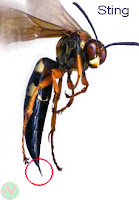 |
| Sting |
Ø Sting / stɪŋ / (স্টিঙ্) n {US also stinger} [a sharply pointed part of an insect, plant or animal that goes through a person’s or animal’s skin leaving a small, painful and sometimes poisonous wound] (তীক্ষ্ণ বিষাক্ত হুল <মৌমাছি ভিমরুল প্রভৃতির>):
Ø Pectoral / ˈpektərəl / (ˈপেক্টএরএল্) adj [relating to or connected with the chest or breast] (বুক সংক্রান্ত; বক্ষের): pectoral fins
Yellowtail Catfish
Yellowtail catfish / ˈjeloʊteɪl ˈkætfɪʃ / (ˈইয়েলৌটেইল ˈক্যাটফিশ্) n [it is a species of shark catfish native to fresh and brackish waters of Indian-subcontinent. It has also been introduced to Cambodia and Vietnam. It grows to a length of 3 meters. This fish is important as a food fish] (পাঙ্গাস):
<SYN> Pungas catfish;
Ø Brackish / ˈbrækɪʃ / (ˈব্র্যাকিশ্) adj [<of water> salty, dirty in an unpleasant way] (<পানি সম্পর্কে> ঈষৎ লোনা): brackish lakes/ lagoons/ marshes
Orange-fin Labeo
Orange-fin labeo / ˈɔːrɪndʒ-fɪn læbɪə / (আরিঞ্জ-ফিন ল্যাবিএ) n [calbasu is a fish with a small-mouthed from carp family, found commonly in rivers and freshwater lakes in and around South Asia] (কালিবাউস; কালবোস):
Climbing Perch
Climbing perch / ˈklaɪmɪŋ pɜːrtʃ / (ˈক্লাইমিং পা্র্চ) n [climbing perch get their common name from legends that say they can climb trees but this is totally unfounded and they never known to climb] (কৈ <মাছ):
Ø Legend / ˈledʒənd / (ˈলেজ্এনড) n [a story from ancient times about people and events, which may or may not be true; this type of story] (লোককাহিনী; কিংবদন্তী): He is writing a thesis on Irish legend and mythology(পৌরানিক কাহাণী).
<SYN> Myth
Ø Unfounded / ʌnˈfaʊndɪd / (আন্ ˈফাউনডিড) adj [describe a claim or piece of news which is not based on fact] (ভিত্তিহীন; অমলূক): These allegations are completely unfounded.
Tilapia
Tilapia / tɪˈlɑːpiə / (টিˈলাঃপিএ) n [tilapia is mainly freshwater fish inhabiting shallow streams, ponds, rivers, and lakes and commonly found in hot countries that are used for food] (তেলাপিয়া): Tilapia consumes floating aquatic plants.
Ø Float / floʊt / (ফ্লৌট্) v [to stay on the surface of a liquid and not sink or to move slowly in the air] (ভাসা; ভেসে থাকা/ যাওয়া): The smell of newly baked bread floated up from the kitchen.
Shrimp
Shrimp / ʃrɪmp / (শ্রিম্প) n {<USA> Prawn} [a small sea animal with a thin shell, ten legs, two antennae, and long tail or its pink curved body eaten as food] (চিংড়ি; বাগদা চিংড়ি): Shrimp has high levels of omega-3 fatty acids and low mercury.
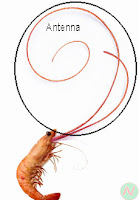 |
| Antenna |
Ø Antenna / ænˈtenə / (এ্যান্ˈটেনএ) n {Plu. antennae} [either of the two long thin parts on the heads of some insects and some animals that live in shells, used to feel and touch things with] (<কীট-পতেঙ্গ ও চিংড়ি জাতীয় কতিপয় প্রাণীর মাথায় যুক্ত স্পর্শসন্ধানী> শুঙ্গ):
<SYN> Feeler
Lobster
Lobster / ˈlɑːbstər / (ˈলাঃবছ্টএর) n [a sea animal has a hard shell, a long body divided into sections, eight walking legs, and two large claws, its shell is black but turns bright red when it is boiled] (গলদা চিংড়ি):
Ø Claw / klɔː / (ক্লো) n [one of the two pointed parts, used for holding things, at the end of the legs of some insects and sea creatures] (<কাঁকড়া- চিংড়ি প্রভৃতির সাঁড়াশির ন্যায়> দাঁড়া/ নখর): keep your fingers from the crab’s(কাঁকড়া) claws when you pick it up.
Pool Barb
Pool barb / puːl bɑːrb / (পূল্ বাঃর্ব্) n [it is a tropical freshwater and brackish fish belonging to the Puntius genus] (পুঁটি):
Olive Barb
Olive Barb / ˈɑːlɪv bɑːrb / (ˈআলিভ্ বাঃর্ব) n [ ? ] (সরপুঁটি):
Butter Catfish
Butter catfish / ˈbʌtər ˈkætfɪʃ / (ˈক্যাটফিশ) n {Also ompak} [a species of sheatfishes native to Asian countries such as Bangladesh, India, Pakistan, and Sri Lanka, but recently identified in Myanmar. These fish are normally found in the river, but the canal bill and pond have these fish. It is valued for its delicate flesh and is also used for making high-quality fish balls] (পাবদা; বোয়ালী পাবদা বা কানী পাবদা <মাছ>):
Eel
Eel / iːl / (ঈল) n [a long, thin sea or freshwater fish that looks like a snake, most eels live in the shallow waters of the ocean and burrow into sand, mud, or among rocks. A majority of eel species are nocturnal, thus are rarely seen sometimes, they are seen living together in the holes. There are several types of eel, some of which are used for food] (বান মাছ):
Ø Nocturnal / nɑːkˈtɜːrnl / (নাঃকটা্র্ন্ল) adj [<of animals> active at night] (নিশাচর; নৈশ): These animals are largely nocturnal.
<ANT> Diurnal / daɪˈɜːrnl / (ডাইˈআঃর্নল)
Swamp Eel
Swamp eel / swɑːmp iːl / (ছোয়াম্প্ ঈল) n [a family of freshwater eel-like fishes of the tropics and subtropics. Most species are able to breathe air and typically live in marshes, ponds, and damp places, sometimes burying themselves in the mud if the water source dries up] (কুঁচে, কুচিয় বা কুইচ্চা<মাছ>):
Lesser Spiny Eel
Lesser Spiny Eel / ˈlesər ˈspaɪni iːl / (ˈলেছএর্ˈ স্পাইনি ঈল) n [] (বাইম <মাছ>): Lesser Spiny eel is peaceful fish which can be kept in a community tank with large fish.
<SYN> Striped spiny eel; Peacock Eel
Ø Community / kəˈmjuːnəti / (কএˈমিউনএটি) n [<biology> a group of plants, fishes, and other animals growing or living in the same place or environment] (অভয়স্থান): community fish tank
Striped Dwarf Catfish
Striped dwarf catfish / straɪpt dwɔːrf ˈkætfɪʃ / (স্প্রাইপ্ট্ ডোয়োর্ফ ˈক্যাটফিশ) n {Also gangrtis mystus} [the striped dwarf catfish is a species of the catfish family, it is found in brackish water] (টেংরা মাছ):
 |
| Dwarf |
Ø Dwarf / dwɔːrf / (ডোয়োর্ফ্) n [an extremely small person, who will never grow to normal size because of a physical problem] (বামন; ক্ষুদ্রাকৃতির মানব): a person suffering from dwarfism.
Elongate glassy perchlet / ɪˈlɔːŋgeɪt ˈglæsi pərtʃlet / (ইˈলোঙ্গেইট্ ˈগ্ল্যাছি পএর্চলেট্) n [a species of freshwater fish in the Asiatic glassfish family, the only species in the genus Chanda. It is native to an area of South Asia from Pakistan to Burma, in the Indomalaya ecozone](চান্দা বা নামা চান্দা <মাছ>):
Gangetic Leaffish
Gangetic Leaffish / gængətɪk liːffɪʃ / (গ্যান্জএটিক্ লীফফিশ্) n [a species of Asian leaffish native to South Asia and Indochina. They are common in slow-moving or stagnant bodies of water, including ponds, lakes, ditches, and flooded fields. They are commercially important and are highly prized as food fish. They are also caught for the aquarium trade] (ভেদা বা গাঙ্গেয় ভেদা <মাছ>):
Bombay Duck
Bombay duck / ˌbɑːmbeɪ ˈdʌk / (ˌবাঃমবেই ˈডাক) n [ ? ](লইটা মাছ): Please cut the Bombay duck fishes to your desired size, then clean and wash them properly.
Bronze Featherback
Bronze featherback / brɑːnz ˈfeðərbæk / (ব্রাঃন্জ্ ˈফেদএরব্যাক) n [the bronze featherback is a dark bronze-like color that becomes lighter with age. It reaches a length of up to 60cm] (ফলি): The Bronze featherback is an important food item in Louis, Indonesia, and Thailand.
Mola Carplet
Mola Carplet // (মলা কারপ্লেট্) n [a species of carplet is a freshwater fish, found in Pakistan, India, Bangladesh, and Myanmar. they typically live in ponds, canals, slow-moving streams, nullahs, and paddy fields] (মলা <মাছ):
Pomfret
Pomfret / pɑːmfret / (পাঃমফ্রেট্) n [a flatted-bodied fish of open seas that typically has scales on the dorsal and anal fins is important food sources for humans] (রূপচান্দা):
<SYN> Rupchanda
Rita
Rita // (রিটা) n [Rita is found across Southern Asia. It is one of the giants of its genus, growing to a length of 150 cm, it is commercially fished for human consumption] (রিডা বা রিঠা):
Ø Fish / fɪʃ / (ফিশ) v [to try to catch fish with a hook, nets, etc] (মাছ ধরা; মৎসশিকার করা): He can fish with this fish- hook.
Ø Consume / kənˈsuːm / (কএনˈছূম) v [to eat or drink, especially a lot of something] (আহার বা পান করা; ভোগ করা): She consumes vast quantities of chips with every meal.
Consumer / kənˈsuːmər / (কএনˈছূমএর) n [a person who buys goods or uses services] (ভোগ্যপন্য ব্যবহারকারী; ভোক্তা):
Consumer / kənˈsuːmər / (কএনˈছূমএর) n [a person who buys goods or uses services] (ভোগ্যপন্য ব্যবহারকারী; ভোক্তা):
Ø Belong / bɪˈlɔːŋ / (বিˈলোঙ) v [to be in the right or suitable place] (স্বত্বাধীন হওয়া; অংশস্বরুপ হওয়া): This table belongs in the sitting-room.
<PHR-VERB> Belong to [to be part of a particular group, type, or system](<কোনো কিছুর> অংশস্বরুপ হওয়া): Lions and tigers belong to the cat family.
Long-Whiskered Catfish
Long-whiskered catfish / lɔːŋ-ˈwɪskərd ˈkætfɪʃ / (লোঙ্-ˈঊইছকএর্ড্ ˈক্যাট্ফিশ) n [a species of bagrid catfish found in southern Asia in the nations of Pakistan, India, Nepal, Bangladesh, and Myanmar. It grows to a length of 180 centimeters (71 in) and is commercially fished for human consumption. It is also a popular gamefish] (আইড় <মাছ>):
Dwarf Goonch
Dwarf goonch / dwɔːrf guːntʃ / (ডোয়ার্ফ গূন্চ্) n [dwarf goonch is a species of catfish in the genus Bagarius. It is generally reported as being found in large and medium rivers in South and South East Asia] (বাঘাইর <মাছ):
Horse Mackerel
Horse Mackerel / hɔːrs ˈmækrəl / (হোর্ছ ˈম্যাকরএল্) n [horse mackerel is a sea fish, belongs to the jack mackerel family. It gets its common name from the legend that other small fish could ride on its back over the great distance. Horse mackerel is cooked for food] (রকেট মাছ): Horse Mackerel is edible and can be smoked, fried, salted, and baked; it is an important commercial fish also.
<SYN> Atlantic Horse Mackerel
Ø Ride / raɪd / (রাইড) v {Pt. rode(রোড); Pp. Ridden(রিডএন)} [to sit on a horse or a bicycle and travel along on it controlling its movements] (ঘোড়ায় বা সাইকেলে চড়া এবং চড়ে এগিয়ে যাওয়া): I ride to work on my bicycle.
Ø Edible / ˈedəbl / (ˈএডএবল) adj [suitable or safe of eating; not poisonous] (ভোজ্য; বিষমুক্ত): The vegetables were old but still looked edible.
Ø Bake / beɪk / (বেইক) v [to cook inside a cooker, without using added liquid or oil] (<রুটি ইত্যাদি বন্ধ উনুনে> সেকা; ঝলসানো): I am baking a birthday cake for Lyzoo.
Tuna
Tuna / ˈtuːnə / (ˈটূনএ) n [tuna is a large saltwater finfish, found in warm Seas, and are generally found in large schools. It averages 6.6 ft long and is believed to live for up to 50 years, and popular as a game fish] (টূনা):
Cod
Cod / kɑːd / (কাঃড) n [a large sea fish Cod is popular as a food with a mild(মৃদু) flavor and dense, flaky white flesh](কড <মাছ>): Cod livers are processed to make cod liver oil, an important source of vitamin.
Ø Dense / dens / (ডেন্ছ্) adj [containing a lot of people, things, plants, etc. with little space between them] (ঘন; নিবিড়): a densely populated area(=ঘন বসতিপূর্ণ এলাকা)
Ø Process / ˈproʊses / (ˈপ্রৌছেছ্) v [to treat raw material, food, etc. in order to change it, preserve it, etc. ] (প্রক্রিয়াজাত করা): When food is processed, many of the nutrients(পুষ্টিকর পদার্থ) are stripped away.
Barramundi
Barramundi / ˌbærəˈmʌndi / (ˌব্যারএˈমানডি) n [a large mouth fish found in rivers in Australia and SE Asia] (ভেটকী):
Ganges River Sprat
Ganges river sprat / gæŋdʒəs ˈrɪvər spræt / (গ্যাঙ্জএছ্ ˈরিভএর স্প্র্যাট্) n [] (কাচকি; গুড়া মাছ):
Guntea Loach
Guntea loach / gʌntiː loʊtʃ / (গান্টী লৌচ্) n {Also peppered loach} [a species of cobitid loach native to southern and southeastern Asia. This species reaches a length of 15 cm. This fish is found in the aquarium trade] (পুঁইয়া বা গুতুম <মাছ>):
Dwarf Gourami
Dwarf gourami / dwɔːrf gɔːrəmɪ / (ডোআর্ফ্ গোরএমি) n [a species of gourami native to Pakistan, India, and Bangladesh. However, it has also been widely distributed outside of its native range. It inhabits slow-moving waters in rivulets, streams, and lakes, occurring in areas with plentiful vegetation] (খইলশা <মাছ>):
Puffer Fish
Puffer fish / ˈpʌfər fɪʃ / (ˈপাফএর ফিশ) n [a poisonous fish that lives in warm seas and fill with air when it is in danger.] (পটকা মাছ; বেলুন মাছ): Whole body of puffer fish is not poisonous, a specially trained chef, knows which part is safe to eat and in what quantity.
Fish Names Meaning & Picture
How to Select Fresh and Good Fish
Good and fresh fish is a delicate food that can be cooked in different kinds of ways, Buying the highest quality can be tricky, but it is an easy way to choose fresh and good fish.
1. Check the fish’s eyes: they should be clear, not cloudy, if the eyes are cloudy, then the fish is old.
2. Check the fish’s body: press the body to test it for elasticity. The flesh should be firm and springy, and it appears shiny. Dark spots and bruises on the body indicate poor quality.
3. Check the fish’s smell: it should not have a pungent, fishy odor; the flesh of the fish should smell faint or not smell at all.
4. Check the fish’s gills: which should be wet and appear bright red or bright pink. If they are faded or grayish, or if the gills are dry or slimy, then the fish is old.
Caution: A red dye is often applied to the gills to make them appear fresh.
5. Check the fish’s flesh gaps: the flesh on a fish fillet should be tight with no gaps. A flesh fillet from a good fish should be translucent and not discolored.
Ø Trick / trɪk / (ট্রিক্) n [something that you do to make Sb believe Sth which is not true] (চালাকি; চাল; কুচাল; তামাশা; বাহানা; ছলচাতুরী): He played a really nasty trick on me – he put syrup in my shampoo bottle!
<VERB> Trick [to make Sb believe Sth which is not true, especially in order to cheat them] (প্রতারণা করা; ধোঁকা দিয়ে কিছু করানো): I had been tricked and I felt stupid.
<ADJ> Tricky / ˈtrɪki / (ˈট্রিকি) adj [<of people> clever, but likely to trick you] (কুটিল; ধাপ্পাবাজী; ধোঁকাবাজী): She was a tricky character, that one.
<NOUN> Trickster / ˈtrikstər / (ˈট্রিকস্টএর) n [a person who tricks or deceives other people] (ধোঁকাবাজ; ধান্দাবাজ; ধাপ্পাবাজ; ফিচেল): A trickster politician
Ø Check / tʃek / (চেক্) v [to make certain that something or someone is correct, safe, or suitable by examining it or them quickly] (কোনোকিছু সঠিক বা ভালকিনা তা পরোক করে দেখা): Have you checked the fish?
Ø Cloudy / ˈklaʊdi / (ˈক্লাউডি) adj [not clear or transparent] (ঘোলা): The water looked cloudy and not fit to drink.
<ANT> Transparent
Ø Old / oʊld / (ওল্ড্) adj [used to describe or ask about something’s times] (<কোনোকিছু> কতক্ষণ সময়ের বাসি):
<ANT> Fresh
Ø Elasticity / ˌiːlæˈstɪsəti / (ˌঈল্যাˈছটিছএটি) n [the quality that Sth has of being able to stretch and return to its original size and shape (=of being elastic)] (স্থিতিস্থাপকতা; নমনীয়তা; <কোনোকিছু চাপ দেওয়ার পর তা আগের অবস্থায় ফিরে আসে কি না> তা পরিক্ষা): As the skin grows older it loses its elasticity.
Ø Springy / ˈsprɪŋi / (ˈস্প্রিঙি) adj [returning quickly to the original shape after being pushed, pulled, stretched, etc.](স্থিতিস্থাপক): Rubber is springy substance.
Ø Appear / əˈpɪr / (এˈপিআর) v [to become noticeable or to be present] (দৃষ্টিগোচর হওয়া; দৃশ্যমান হওয়া): The sunset and the stars appeared in the sky. He appears a perfectly normal person.
<SYN> Seem
Ø Bruise / bruːz / (ব্রূজ) n [a blue, brown, or purple mark that appears on the damaged skin after Sb has fallen, been hit, etc.] (কালশিরে; শরীর বা ফল বা মাছের গায়ে আঘাতের দাগ): He had a few cuts and bruise but nothing serious. A huge bruise over his eye
<SYN> Injure
Ø Indicate / ˈɪndɪkeɪt / (ˈইনডিকেইট) v [to show that Sth is true or exist] (নির্দেশ করা; জানানো; জ্ঞাপন করা): A yellowing of the skin indicates jaundice.
<NOUN> Indication / ˌɪndɪˈkeɪʃn / (ˌইনডিˈকেইশন) n [a sign that something exists, is true, or what sb is thinking or feeling] (ইঙ্গিত; পূর্বলক্ষণ): They gave no indication of how the work should be done.
Ø Pungent / ˈpʌndʒənt / (ˈপানজএন্ট্) adj [describes a very strong smell or taste, something one that is unpleasantly strong] (<গন্ধ, স্বাদ ইত্যাদি> কড়া, তীব্র, তীক্ষ্ণ; তিক্তস্বাদযুক্ত ঝাল): the pungent smell of burning rubber
Ø Odor / ˈoʊdər / (ˈঔডএর) n [a smell, especially one that is unpleasant] (অপ্রিয় গন্ধ): a foul/ musty/ etc odor.
Ø Faint / feɪnt / (ফেইন্ট্) adj [that cannot be clearly seen, heard or smelt] (ক্ষীণ; অস্পষ্ট): a faint smell of perfume.
Ø Wet / wet / (ওএট) adj [covered in water or another liquid] (সিক্ত; ভেজা): Her face was wet with tears. I had to cycle in the rain and got soaked wet.
Ø Fade / feɪd / (ফেইড) v [to lose color, brightness or strength gradually] (বর্ণ, উজ্জলতা, সজীবতা বা শক্তি কমে যাওয়া; বিবর্ণ করা বা হওয়া): The curtains had faded in the sun. My sunburn is already fading.
Ø Slime / slaɪm / (স্লাইম) n [a sticky liquid substance which is unpleasant to touch, such as the liquid produced by fish and snails and the greenish-brown substance found near water] (নরম, নোংরা, আঠালো পদার্থ): Snails and slugs leave a trail of slime.
<ADJ> Slimy / ˈslaɪmi / (ˈস্লাইমি) adj [like or covered with slim](নোংড়া কাদাটে ও পিচ্ছিল): thick slimy mud
Ø Caution / ˈkɔːʃn / (ˈকোশ্ন্) n [great care that you take in order to avoid danger or mistakes; not taking any risks] (সতর্কতা অবলম্বন): As it was his first offense, he was only given a caution.
<SYN> Prudent
Ø Dye / daɪ / (ডাই) v [to change the color of Sth, especially by using a special liquid or substance] (বিশেষ তরল পদার্থ দিয়ে কোনোকিছুর রং পরিবর্তন করা): She dyed her hair blonde.
Ø Apply / əˈplaɪ / (এˈপলাই) v [to make use Sth or make Sth work for the particular purpose] (প্রোয়গ করা): to apply economic sanctions.
Ø Gap / gæp / (গ্যাপ) n [a space between two things or in the middle of Sth, especially because there is a part missing] (ফাঁক): The children squeezed through a gap in the wall.
Ø Translucent / trænsˈluːsnt / (ট্র্যানছˈলূন্ট্) adj [allowing light to pass through but not transparent] (আলোক প্রবাহী কিন্তু অস্বচ্ছ): translucent plastic/ glass
How to Clean, Descale, and Gut a Fresh Fish
Noted from Wikipedia; Google Image, Oxford & Cambridge Dictionary

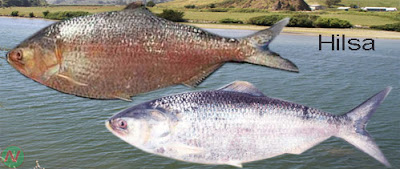
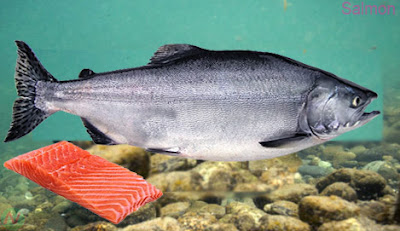



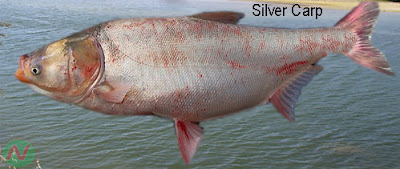



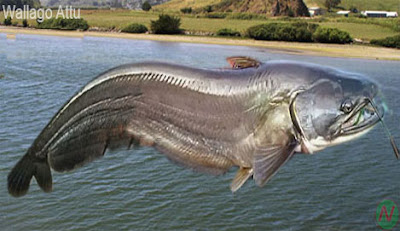



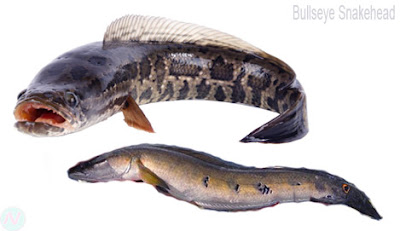

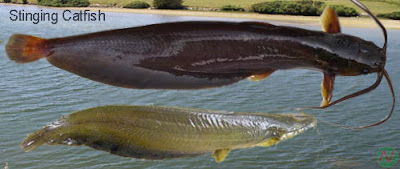



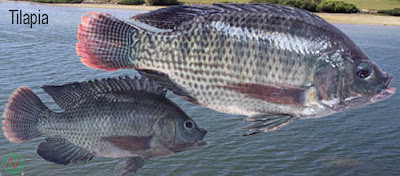

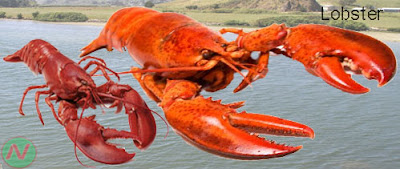
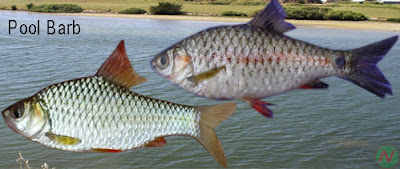
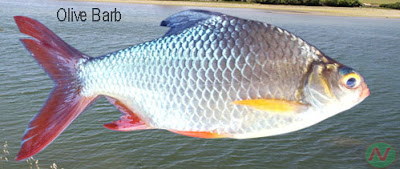


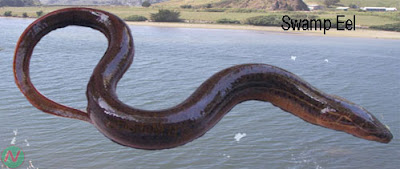







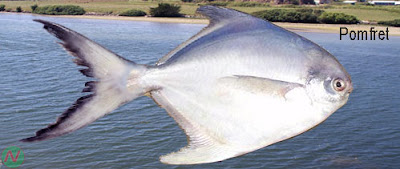
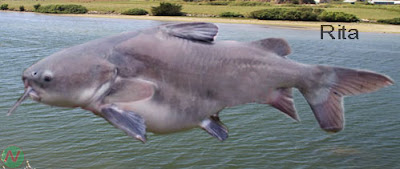


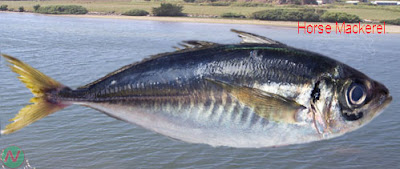
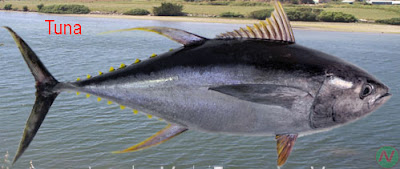
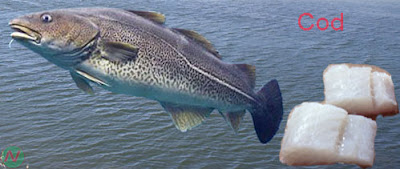


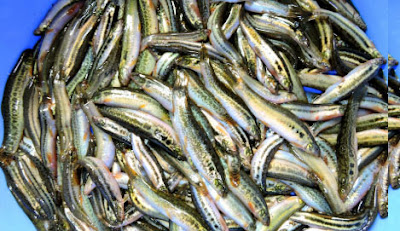












No comments